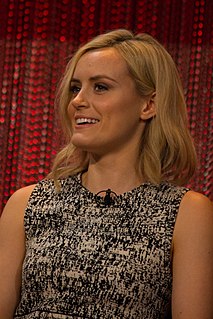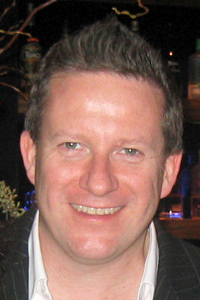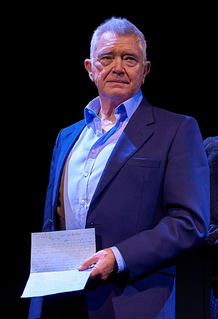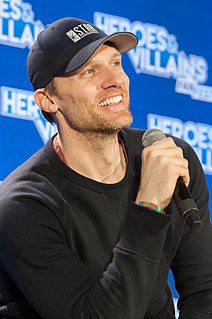A Quote by Ted Kooser
I had in effect been thrown out of graduate school because I was a lousy graduate student, and I had to find a job, and I took the first job that came along. It happened to be a management trainee job in a life insurance company, and I just stayed. It was always, mainly, the idea was that I would support myself as a writer, and I knew I would have to have some sort of work, and it didn't make a whole lot of difference to me what it was. I mean, I could have been a paper hanger or something for that matter.
Quote Topics
Along
Always
Because
Been
Came
Company
Could
Could Have Been
Difference
Effect
Find
First
First Job
Graduate
Graduate School
Had
Happened
Idea
Insurance
Job
Just
Knew
Life
Life Insurance
Lot
Lousy
Mainly
Make
Management
Matter
Me
Mean
Myself
Out
Paper
School
Some
Something
Sort
Stayed
Student
Support
Thrown
Took
Whole
Work
Would
Writer
Related Quotes
So often, we're expected to maintain some sort of standard - that won't get you where you need to go. One of the most daring things I've done is drop out of graduate school. I had no job, but something inside me was saying, 'Go! Be in the world!' I had to listen to myself, and it worked out. I still think, 'Who was that girl?'
I don't think I would have been a good architect. Really, I have thought about this from time to time, and I might have wound up like my father, who never did find that which he could devote his life to. He sort of drifted from job to job. He was a traveling salesman, he was a bookkeeper, he was an office manager, he was here, there, there. And however enthusiastic he was at the beginning, his job would bore him. If I hadn't had the writing, I think I might have replicated what he was doing, which would not have been good.
I used to tell my graduate students at Stanford, 'Don't worry about what job you have to pick because your job picks you. Let your job pick you. Find something you are passionate about. Then when you are passionate, be persistent. Just keep doing it for a while because progress is always hard work. It never rests in ideas.'
What do you have in mind after you graduate?" What I always thought I had in mind was getting some big scholarship to graduate school or a grant to study all over Europe, and then I thought I'd be a professor and write books of poems or write books of poems and be an editor of some sort. Usually I had these plans on the tip of my tongue. "I don't really know," I heard myself say. I felt a deep shock, hearing myself say that, because the minute I said it, I knew it was true.
I never made conscious choices. There were times in my life that I chose the first job that came along because I was broke. I think that there were maybe a handful of times that I had a choice. In recent years, Ive had more of a choice, and its been very nice to have that choice, but most of the time, you just hope that theres another job after this one.
My very first professional job was with a theatre company in 1965 and the first job they gave me was literally shovelling sh*t. I was an assistant stage manager and they told me to clear out the prop store. I opened it up and no-one had been in there for 25 years and it was inches deep in rat sh*t. So before I could get anywhere I had to clear it up. I thought, 'All these years of training, the best drama school in the world, and this is what I'm doing.'
I had been a veteran of pretty challenging job searches, so I knew firsthand how frustrating, confusing, and demoralizing the job search process can be. Even after you get a job, many people join companies and discover in the first couple weeks that they aren't a good match with the personality and values of the company.
I came out to Los Angeles for a couple of meetings in the summer of 2005, and I ended up getting a movie called Firehouse Dog for Fox. And I thought, "Oh, man. I'm doing a movie. Maybe I'll work a lot more now. I'm an actor now." Then, for eight, nine months I didn't work after that. After that movie, I began to get some guest star roles, fairly consistently, but because I had been so presumptuous before in thinking that the other jobs would lead to something, I realized: "Just get up. Go to work. Go home. This is your job just like everyone else's job."







































